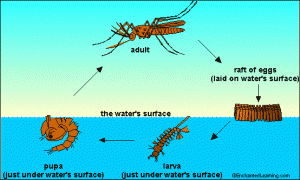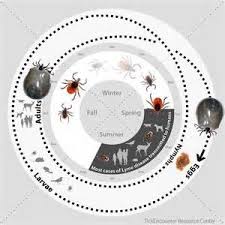
Metro-New Yorkers can count on mosquitoes being even more of a hassle this year. Wherever Hurricane Sandy carved belowground gullies, however small, beneath streets or buildings — mosquitoes will find them. That’s because the rainwater that pools underground provide all the room these mosquitoes need to lay eggs.
Predators that feed on mosquito eggs and larvae (called wrigglersin the trade) aren’t likely to find those secret nurseries. Within a couple of weeks you’ve got a whole lot more mosquitoes. Similarly, city streets don’t provide the right habitat for mosquito predators to keep these adults in check.
Ticks could pose a parallel problem. Sandy left piles of stalks and leaves from coastal grasses and reeds — even from people’s lawns and gardens — all along the shorelines.

These “debris fields” make great hiding places for ticks. Ticks can latch onto birds, then drop off far from shore. Even mice could carry ticks inland.
Many mosquitoes or ticks don’t carry West Nile virus or Lyme disease. But since both diseases can bear such nasty consequences — Lyme disease especially — knowing what to watch for and what to do is critical.